
Fast, affordable Internet access for all.

Fiber to the Home
Blue River, Colorado (est. pop. 882) is the latest Colorado municipality to explore building its own broadband network with an eye on affordable access. The town is part of a trend that’s only accelerated since the state eliminated industry-backed state level protections restricting community-owned broadband networks.
Just south of Breckenridge in the central part of the state, Blue River is nestled in one of the more rural parts of Summit County. Comcast (Xfinity) enjoys a broadband monopoly, resulting in spotty access, slow speeds, and high prices. Locals also routinely complain that cell phone service remains spotty in much of the mountainous area.
In response, town leaders recently hired the consulting firm, NEO Connect, to explore the possibility of building a town-wide fiber network. According to a feasibility study presented to the Blue River Board of Trustees by Mayor Toby Babich, the construction of a fiber network serving every town resident will cost somewhere in the neighborhood of $13 million.
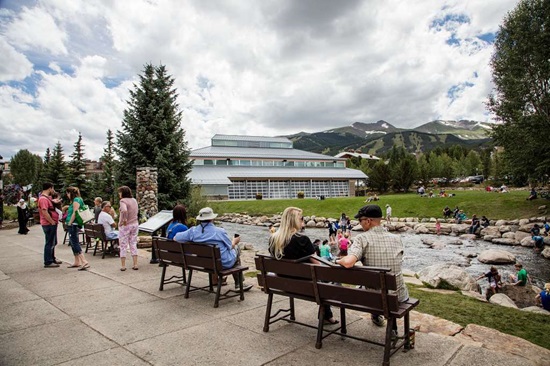
While that “may seem out of reach,” Babich recently told the board, “we believe with the right funding and partnership we can move forward with this project.”
The estimates for network construction range somewhere between $7 million to $24 million, depending on how much underground trenching work is required.
Pikeville, Kentucky (pop. 7,300) sits about 150 miles southeast of Lexington, in the extreme eastern part of the state. Today, after almost a decade of fighting with Internet Service Provider (ISP) Optimum about service so consistently poor that the city finally sued the provider, it’s working on an alternative: a partnership that will see the local government build new citywide fiber infrastructure and lease it to an operating partner.
A Tale As Old As Time
Publicly available data shows that, historically, about two-thirds of the city of Pikeville can take Internet service from Inter Mountain Cable - a regional provider with about 25,000 subscribers across Kentucky, West Virginia, and Virginia. Likewise, Optimum (formerly Suddenlink) offers cable service to about the same number of households. AT&T’s DSL service covers a little more than a quarter of town. Those living in the northern half of the city generally have better service options than those living in the southern half.
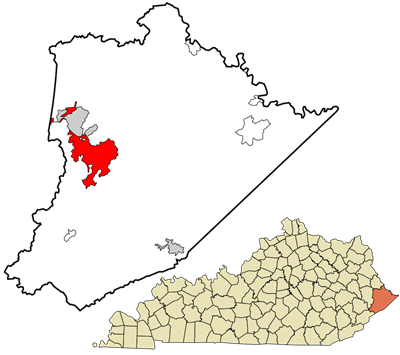
The path the city of Pikeville has taken began almost 15 years ago. In 2009, the local government signed a new, 10-year franchise agreement with Suddenlink. But when Altice (originally a French telecommunications company) bought Suddenlink back in 2015 to build its portfolio here in the United States, things quickly took a turn for the worse.
As Loveland, Colorado’s municipal broadband network continues to rack up industry accolades on its path to providing world-class high-speed Internet service, the city is now celebrating another important milestone.
Last week, Pulse Fiber officials announced that construction of its community-owned broadband network is now complete with every household and business in this city of 77,000 now having access to affordable gig-speed service.
The $110 million construction project, which began in earnest only four years ago, is the largest capital project in the city’s history, reaching the finish line on time and on budget, city officials said.
In a press announcement Steve Adams, Loveland’s City Manager, captured the meaning of the moment:
“As we celebrate the successful conclusion of this historic project, Pulse stands as a shining example of what is possible when the community unites to pioneer innovative, collaborative solutions. We did this for ourselves, and we made it happen together.”
“This infrastructure has been designed and built with future generations in mind, ensuring Loveland remains at the forefront of modern, robust, and future-proof Internet delivery,” Pulse Broadband Manager Brieana Reed-Harmel added.
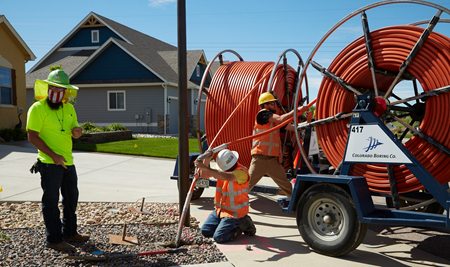
Pulse officials candidly acknowledged that the pathway to the leading edge of Internet connectivity wasn’t easy, as the city had to navigate network construction through a global pandemic, supply chain disruptions, and inflation. But despite those challenges, Pulse Fiber has deployed 631 miles of conduit and over 1,300 miles of fiber throughout the city.
CVFiber continues to make progress in deploying affordable fiber to long-neglected rural areas in Vermont, as the state’s effort to embrace CUDs (Communications Union Districts) as a cornerstone of bridging the digital divide also pays dividends.
In late 2022 CVFiber broke ground on an ambitious plan to build a 1,200-mile fiber-optic network to bring affordable gigabit broadband access to 6,000 rural Vermont addresses deemed underserved by commercial broadband providers.
According to an October announcement by the CUD, its first customers have been connected in the central Vermont town of Calais, with construction ongoing in nearby Middlesex, East Montpelier, and Worcester.
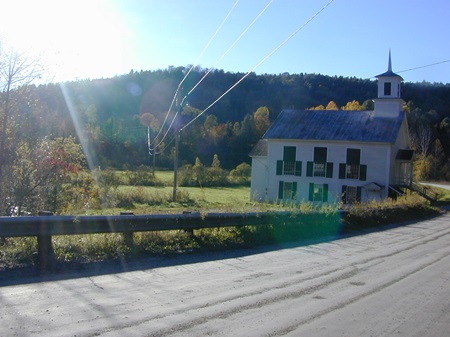
“We are enthusiastic about our progress as we bring high-speed Internet to central Vermont communities,” CVFiber Executive Director Jennille Smith said. “The progress that we have made and the impact that we’ve been able to achieve to date could not have been accomplished without the unwavering commitment from our partners. We are optimistic as we expand to other service areas.”
CUDs have proven to be a useful way for municipalities to band together to cooperatively build broadband projects that may have been financially and logistically impossible to try alone. Vermont CUDs can legally fund needed broadband expansions through debt, grants, and donations—but not taxes, though they themselves are tax-exempt nonprofits.
CVFiber’s fiber deployment is expected to cost $60 million, $27 million of which is being paid for by federal grants made possible by the American Rescue Plan Act (ARPA). The remaining cost is expected to be funded by network revenue, loans, and future grant opportunities.
New England residents have been complaining about Verizon’s lack of meaningful fiber upgrades for the better part of the last two decades, prompting a steady parade of interest in community owned and operated fiber networks in states like Massachusetts.
But some of these community broadband efforts, such as West Springfield’s plan to deliver affordable fiber access to every city resident, are still being hampered by Verizon.
In 2021 the city (est. pop. 28,000) announced it would be partnering with Westfield Gas and Electric, the publicly owned utility in Westfield, Massachusetts, which has built and operates fiber networks in nearly two dozen communities in the Berkshires. The end result: Westfield Gas and Electric's broadband subsidiary Whip City Fiber plans to deliver West Springfield residents symmetrical gigabit fiber for $75 a month, without long term contracts or onerous hidden fees.
But efforts to launch a $1.8 million pilot project have been on hold thanks to ongoing delays by Verizon and Eversource to prepare local utility poles for fiber attachment, West Springfield Chief Technology Officer Stephanie Straitiff tells local news outlet The Reminder.
The Otter Creek Communications Union District (CUD) has been awarded a $9.9 million grant by the Vermont Community Broadband Board (VCBB). It’s the latest effort by the state to use CUDs to deliver affordable fiber broadband access to the long-neglected rural corners of Vermont.
According to the CUD’s announcement, the funding will help deploy affordable fiber access to roughly 4,100 homes and businesses by 2025. The fiber deployment will be done in partnership with Consolidated Communications, which says it has deployed fiber to 110,000 Vermont homes and businesses since 2021.
The deployment should ultimately bring broadband access to 85 percent of homes and businesses in the Otter Creek CUD area, which covers 17 towns and one city in and near Rutland, Vermont in the southwestern part of the state as 2,300 of the locations targeted by this latest round of funding currently have no access to any broadband service whatsoever.
“We’re excited to work collaboratively with Consolidated to bring future-proof Internet to the 18 communities within our CUD,” Otter Creek CUD Chair Laura Black said in a statement. “This funding will put us well on our way to meeting the goal of universal service in the Rutland region, bringing all the opportunities that come with reliable, high-speed internet. The Otter Creek CUD board is proud to be on the way to bringing the broadband infrastructure this community needs to participate in the global economy.”
A new chapter in state-Tribal relations is being written as the importance of robust and reliable telecommunication becomes all-too-apparent, especially in the face of more frequent extreme weather events. For the first time, a Tribe in California is building high-speed Internet infrastructure in collaboration with the state, thanks to the resilience of the Hoopa Valley people.
Tucked along the Trinity River in the northwestern corner of the state, the Hoopa Valley Reservation is located in a rural and heavily wooded region that spans over 89,000 acres, home to over 2,500 Tribal citizens. Last summer, the area was ravaged by closely-timed wildfires and thunderstorms, followed by massive landslides that collapsed into the region’s riverways, including the Trinity River, a sacred body of water for the Hoopa Tribe.
As the river turned to mud and dead fish began to wash up on its banks, alarmed residents had limited means of connecting with one another, getting timely information about what was going on, or contacting emergency services. That was because of a hidden casualty of the wild weather: the Tribe’s wireless Internet network, which sustained severe damage that not only hindered communication but also extended the time it took to assess the damage.
Memphis Mayor Jim Strickland has introduced an ambitious new plan to incentivize private telecom providers to deliver affordable fiber to 85 percent of the Tennessee city of 633,000. The project, part of the city’s Memphis 3.0 master plan, will spend more than $700 million to expand broadband in a city where less than a quarter of residents–most of them wealthy–have access to next-generation fiber.
On September 23, city leaders introduced a new city ordinance amendment establishing new, streamlined permitting and fee requirements. Their goal: to incentivize companies willing to expand fiber optic broadband to at least 60 percent of Memphis’ residential and business premises and 60 percent of all existing low-income premises.
Not long after, city leaders unveiled more details about their "Smart Memphis Fiber" effort. After issuing an RFP last year, Memphis officials say they’ve struck a partnership with Paris-based Meridiam and Blue Suede Network to build a $700 million fiber optic network with an eye on eventually reaching 85 percent of the total Memphis population.

“City Government will incentivize any interested company by reducing our costs through reductions in permitting fees and right-of-way fees,” Strickland said in a recent presentation before the city council. “Additionally, we will streamline our process to allow a company to get to work faster. We are also putting our own skin in the game.”
The city of Scranton, Pennsylvania has issued a request for qualifications (RFQ) for vendors that may be tasked with constructing an affordable citywide fiber network. City leaders say the RFQ is the opening chapter in a bid to bring affordable broadband access to city residents long neglected by dominant regional monopolies.
According to the full RFQ, officials are looking for partner companies capable of building a citywide network capable of providing 1 Gbps (gigabit per second) download and upload speeds to all premises in the City of Scranton, as well as expanded fiber access for city municipal services and key anchor institutions.
“The City does not require municipal ownership of the fiber or a City operational role,” the RFQ states. “However, the City does request connectivity to certain City sites, a 40-year indefeasible right of use (IRU) for 12 strands of fiber for municipal noncommercial purposes throughout the network, and an access and maintenance agreement governing these strands.”
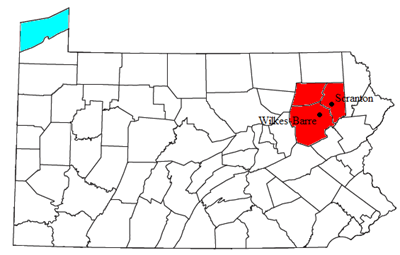
As with so many U.S. markets, broadband competition in Scranton is hard to come by. The market is largely dominated by either Comcast Xfinity or Verizon, the latter of which has been heavily criticized by unions and consumer groups for failing to uniformly upgrade its aging DSL network to fiber, and failing to repair aging lines on a timely basis.
This lack of meaningful competition results in slow broadband speeds, spotty coverage, substandard customer service, and significantly higher prices. Even then, the city hasn’t been without signs of life in the marketplace.
Cleveland, Ohio is putting the finishing touches on an ambitious plan to build a citywide open access fiber network–and deliver affordable fixed wireless service–at minimal cost to city residents. The double-edged proposal aims to bring both meaningful broadband competition–and lower rates–to the long neglected city of 1.7 million people.
Last month, the city announced it had awarded $20 million in ARPA (American Rescue Plan Act) funds to Cleveland-based digital equity non-profit DigitalC. Under the proposal, DigitalC will spend 18 months building a fixed wireless broadband network capable of providing locals with symmetrical 100 Megabit per second (Mbps) service for $18 a month.
DigitalC’s fixed wireless service, EmpowerCLE+, launched in 2018 and accelerated its deployment in 2020 to meet the needs of frustrated parents and workers during peak COVID.
Speaking at ILSR’s and the National Digital Inclusion Alliance (NDIA) Building for Digital Equity (B4DE) event last week, DigitalC CEO Joshua Edmonds noted that the EmpowerCLE+ network currently passes 23,500 households in Cleveland, with 2,300 current subscribers. The city’s new agreement with the city should expand the network’s potential reach to 99.9% of homes in Cleveland.

“We're thankful for the opportunity and we're just really hoping that people use this as motivation to change things within their respective markets,” Edmonds told ILSR in a phone interview.